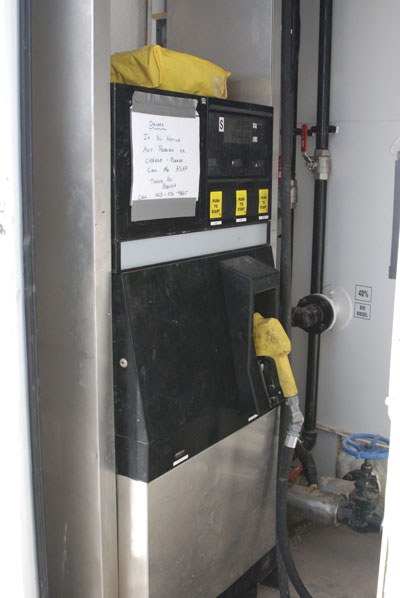
Features
Agronomy
Tillage
Growing the best sunflower seed
Capturing the heart of the snacking consumer in the world of sunflower seed production requires some tough love on the part of growers. In the snack market competition, only the top seed wins but the payoff is worth the effort.
October 22, 2009 By Rosalie I. Tennison
Capturing the heart of the snacking consumer in the world of sunflower seed production requires some tough love on the part of growers. In the snack market competition, only the top seed wins but the payoff is worth the effort.

|
|
| Only the best sunflower seeds make the cut in the confectionary market. |
According to Tom Droog, president of Alberta’s Spitz Sunflower Seeds, his company demands the best seeds available and is willing to pay for them. “I pay the highest price and I have the top two percent of farmers on contract,” he says.
Those growers must meet a stringent standard for quality and they must follow strict production practices while attaining that quality. Loyalty to the company and superior production guarantees the high pay off and nothing less will be tolerated. Droog once cancelled a contract because the grower was seen eating seeds packaged by the competition! That kind of behaviour aside, it is worth the effort to follow the company’s recommendations. “We only use one variety and that is Seeds 2000 6946,” continues Droog. “We demand a four year rotation and insist that growers make their bushel weight after seeding into a clean field by May 20.” Droog’s team meets with growers to discuss their production practices and they will assist in planning rotations and fertility programs.
Yields in confectionary sunflowers are tied very closely to seed quality, says Arvel Lawson, an oilseeds specialist with Manitoba Agriculture, Food and Rural Initiatives in Carman. “Sunflowers are a specialized crop with fewer than 200,000 acres grown in Manitoba,” she explains. “There are relatively few pesticides available for use in sunflowers in Manitoba. As such, it is critical that producers select appropriate fields for growing sunflowers and then monitor these fields very closely so available management tools can be used effectively. Proper crop rotations, utilization of various weed control measures, and scouting for insects are key items in growing a successful confectionary sunflower corp.”
When it comes to insects in sunflowers, Lawson suggests it is important to monitor fields for both pests and ‘beneficials’. “We encourage growers to ensure they are at threshold before spraying because protecting beneficial insects may provide more value than spraying for too low of a population of insect pests. Knowing the grading factors of the processor you are selling seed to is important when making this decision.
“Growers need to balance the desire for uniform, large seed against a lower plant population; the lower the plant population, the more critical proper management becomes in the field,” cautions Lawson. “At the end of the season, many confectionary sunflower growers will desiccate a good quality crop to hasten dry down and minimize the time between plant maturity and harvest; this helps limit negative influence on yield, such as bird damage.” Droog says his company recommends a plant population of 18,000 per acre seeded on dry land which is under irrigation.
As with all crops, fertility is also important with sunflowers, according to Lawson. As an annual crop, sunflowers are unique in the fact that their deep tap roots can access both moisture and nutrients deeper in the soil profile.
A burnoff with glyphosate or the use of a pre-plant incorporated product will also help growers start with a clean field, which is the number one management tool for growing a good crop of confectionary sunflowers, according to both Droog and Lawson. Once the crop begins to mature, Droog says to look for large, plump seeds filled with a big kernel. “We also like to see a nice stripe because it looks good in the bag,” he adds.
Being Number One in Canada in the sunflower seed snack market has its pressures, but the Spitz company meets the challenge with close relationships with its growers across the prairies. The company has about 10,000 acres under contract in the three provinces and does its own testing on those acres and meets with growers on a regular basis to discuss production.
In the end, according to Droog, “quality is so important” and maintaining market share is achieved largely due to his insistence on quality. The challenges to achieve that quality inevitably come back to stringent production protocols. It is difficult to believe the sunflower seed snack business can be so strict, but for growers who can manage the growing challenges and produce a quality product, the contract is in the bag.